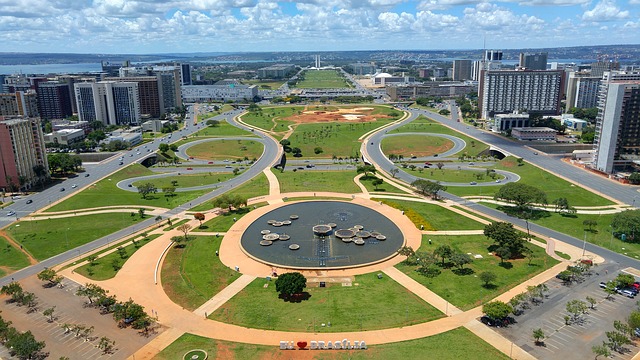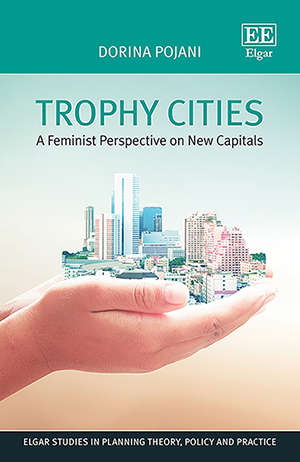
The often ‘dystopian’ failures of planned capital cities result from the patriarchal power that establishes them, according to a new book by a University of Queensland urban planning researcher.
Urban planner and researcher Dr Dorina Pojani has just released Trophy Cities: A Feminist Perspective on New Capitals, an analysis of the socio-cultural and physical production of planned capital cities through the theoretical lens of feminism.
Dr Pojani said that planned capitals – cities built from scratch to embody a nation– have long failed to materialise their intended high ideals.
“Being able to build a city with a clean slate provides, in theory, the most suitable conditions to reach ‘perfection’,” she said.
“Yet the new capitals created since the turn of the twentieth century have been, for the most part, great planning disasters.
“They’re dreary, overpowering, underserviced, wasteful, and unaffordable; encompass large, monumental spaces rather than friendly, usable streets; and public transportation and neighbourhood services are seriously lacking.
“Instead of bringing the nations together, new capitals are often rife in social and ethnic inequalities.
 “So I kept wondering: what is the common thread that connects these megaprojects in their shortcomings?
“So I kept wondering: what is the common thread that connects these megaprojects in their shortcomings?
“Is it the very fact that they are deliberately planned – as opposed to ‘organic’ – or is there something deeper going on.”
Dr Pojani argues that new capital cities fail largely because they embody the patriarchal relations that govern the respective polities.
As part of her research, she reviewed seven new capital cities in-depth, including Australia’s Canberra, but also Brasília, Brazil; Chandigarh, India; Abuja, Nigeria; Nur-Sultan, Kazakhstan; Naypyidaw, Myanmar; and Sejong, South Korea.
“The cities I’ve featured in this book represent a well-distributed, albeit small, sample of new capitals created in the modern era, since the turn of the twentieth century,” Dr Pojani said.
“During this timeframe, the patriarchy combined with other forces including modernism, technology, and globalisation to produce a particularly problematic version of urbanism.
“In their planning and development, new capitals have embodied existing patriarchal conceptions of the nation, the state, urbanism, religion, the economy, and even nature.
“Consequently, they have generally fared even worse than other cities, in the respective countries, which are not capitals.
“They’ve emerged out of political power rather than developing over time, guided by the needs and wants of the residents.
“They magnify problems in an unfavourable manner in efforts to wield new power and majesty.
“As a result, new capitals are as, or even more, unfavourable to women and other disadvantaged groups than ordinary cities.
“But I am not proposing a return to the patriarchal socialist systems installed around the world in the twentieth century, most of which devolved into outright dictatorships.
“In fact, my ideal, feminist city is actually close to John Lennon’s anarchic vision in ‘Imagine’.”
Trophy Cities is available for purchase through Edgar Elgar Publishing’s website. It is also available in the UQ Library in print and digital format.
Media: Dorina Pojani, d.pojani@uq.edu.au; Dominic Jarvis, dominic.jarvis@uq.edu.au, +61 413 334 924.



